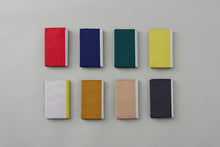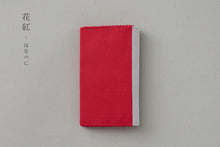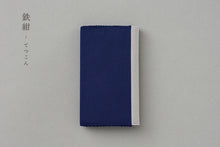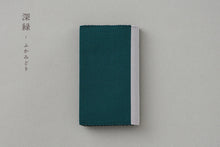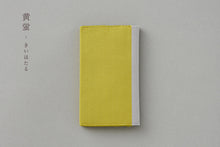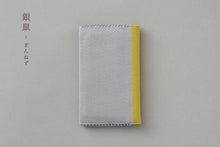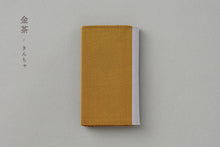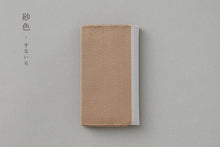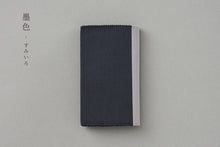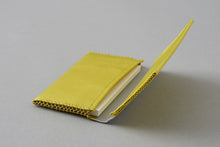
This weaving method has a history spanning over 4,000 years, with its origins traced back to the royal tombs of ancient Egypt. Its introduction to Japan dates back to the Asuka period, and for centuries, it remained one of the most revered and exquisite weaving methods, particularly renowned in the Nishijin textile industry of Kyoto.
Kiyohara Orimono, initially established in Kyoto during the Muromachi era (1336-1573), is widely known for its production of Omura textile and Japanese-style tapestry weaving. The company's commitment to preserving time-honored techniques and traditional looms persisted even after its relocation to Shiga prefecture.

The Tsuzure-ori technique creates fabrics of exceptional strength and durability, making them the preferred choice for commemorating life's significant moments, from ceremonial kimonos to obi-belts and interior decoration textiles, including theatrical curtains, tapestries, and festival ornamental fabrics. Sufuto carries forward this tradition with innovative designs to suit the unique moments and special occasions of our daily lives.
An Elegant, Lightweight, and Durable Card Case
Crafted by hand with the Tsuzume-ori weaving technique, this card case folds elegantly, just like a paper bag, ensuring the safety of your cards.

Incredibly compact and soft, this card case complements both your everyday attire and more elegant outfits with equal finesse.

A Card Case for Expressing your Personal Style
Choose from a variety of colors to find the one that suits you best.

The slim, minimalist design easily fits inside your jacket pocket or adds a touch of elegance to your desk.

A functional card case crafted with traditional skills, designed to bridge the gap between people and craftsmanship.
2017 - Good Design Award
Material:
Silk 1 0 0 %
Size:
Width: 110 mm
Height: 65 mm
Thickness: 10 mm












